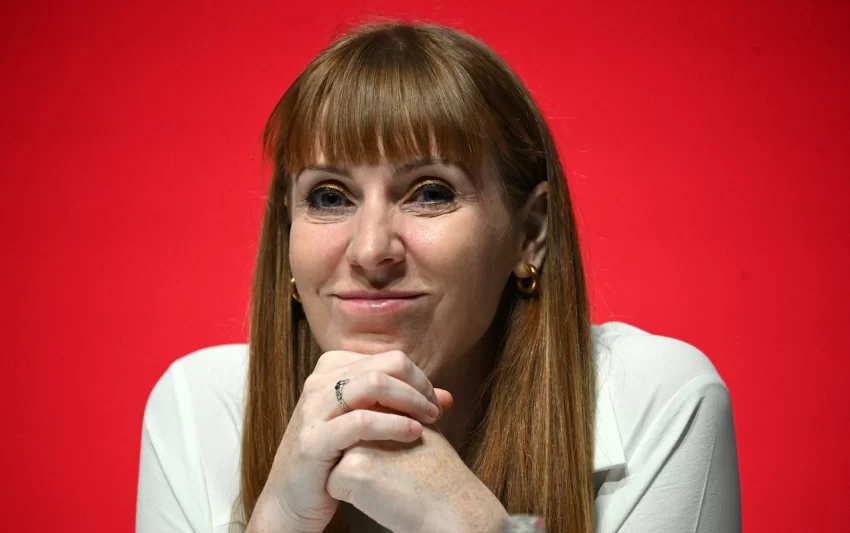The NHS digital revolution needs more than vision — it needs action now
In an AI-first era, where AI is becoming an integral part of everything we do, its applications spanning across different sectors and facilitating various parts of our daily routines, healthcare should be no exception. In an ideal world, this is what healthcare should look like: a patient goes to an app to book an appointment, AI directs them to the doctor with the best expertise, knows which equipment is available, and which location makes most sense, and puts the appointment in their respective diaries.
The complexity with healthcare is that this isn’t just a system, but three interconnected worlds that must work together seamlessly. Patients rightly want care when and where they need it. Clinicians want to ensure their expert resource is directed as impactfully and efficiently as possible. And medical assets, from MRI scanners to life-saving medications, must be available when and where required. This is where investing in technology becomes key.
The good news is that the AI revolution in healthcare is already beginning, and the early results are encouraging. Some GP practices have cut waiting times by 73 percent using smart triaging systems, reducing waits from 11 to three days. AI can help tackle the dreaded ‘8am rush’ when phone lines jam with appointment requests. In the same study, GP practices using these systems reduced phone-based contacts from 88 percent to 18 percent and saw a 30 percent drop in missed appointments — potentially saving £350 million annually from reduced non-attendance.
Through ServiceNow’s work with NHS Trusts, we’ve identified five areas where change can make an immediate difference, as outlined in ServiceNow’s NHS Digital Transformation white paper:
- improving the staff experience;
- joining up corporate services;
- protecting against cyber threats;
- streamlining patient journeys; and
- harnessing AI.
The reward for getting this right? We could see £35 billion in productivity savings by 2030. That’s money that could be reinvested directly into patient care.
Better staff systems could save £750 million annually — not through cuts, but by giving critical NHS workers back the 29 million hours currently lost to bureaucracy. Right now, it takes up to 120 days to get a new NHS employee properly started. In some trusts we have cut that to 25-40 days. Imagine the impact if this was rolled out across the whole NHS. When you’re trying to grow the workforce from 1.5 to 2.4 million people by 2036, every day matters.
Joining up corporate services could save another £1.6 billion each year. This is especially urgent given that Integrated Care Systems are facing combined deficits and have been told to slash running costs by 50 percent. The NHS 10 Year Health Plan for England talks about rebuilding the NHS in working-class communities; areas that currently get 10 percent less funding per person. Digital transformation isn’t just about efficiency; it’s about equity. When systems work properly, everyone benefits, but the biggest gains go to those who currently struggle most to access care.
The problem is these parts barely speak to each other. The white paper reveals just how costly this disconnection has become: 13.5 million hours wasted annually due to inadequate IT, a 7.5 million case waiting list, and nearly £3 billion spent each year compensating for care failures. Behind every statistic is a person. Someone facing a delayed diagnosis, a cancelled operation or simply not receiving the care they deserve.
This fragmentation isn’t just inefficient, it has a direct effect on patients and clinicians too. We’re spending £15.5 billion annually, 6.5 percent of the entire NHS budget, on corporate services that don’t talk to each other. Nurses are spending over a quarter of their time on paperwork instead of caring for patients. GP practices are drowning in 240 million calls annually from frustrated patients who can’t get through. We have a patchwork of systems where crucial information gets lost in translation. When it takes 20 separate manual processes just to say goodbye to a leaving employee, you know there’s room for improvement.
In addition to internal challenges, there’s the cyber threat affecting the NHS. Healthcare cyberattacks doubled between 2022 and 2023. A single ransomware attack forced over 10,000 patients to have their appointments cancelled at just two trusts. Without proper digital defenses and monitoring, we’re one attack away from regional healthcare paralysis.
But here’s the thing, AI is only as good as the systems it connects to. That’s where we need to be honest about the infrastructure challenge. You can’t build tomorrow’s healthcare on yesterday’s technology. We need systems that talk to each other, share information securely and put the right information in the right hands at the right moment.
The truth is, the NHS can’t do this transformation alone. The scale is too big, the timeline too tight and the technical challenges too complex. It’s about partnership — because the best outcomes happen when public sector insight combines with private sector innovation and speed. We need genuine partnerships focused on outcomes, not just products. At ServiceNow, we’ve seen what’s possible when this approach works: connected systems, freed-up time and better patient experiences.
We’re at a crossroads, and the path we choose in the next two to three years will determine the NHS our children inherit. We can keep tinkering around the edges, managing decline through small improvements or we can be bold and build the digital foundation that healthcare needs. This isn’t a distant dream; it’s an immediate opportunity. Patients have waited long enough. NHS staff have endured enough frustration with systems that make their jobs harder, not easier. The cost of inaction isn’t just measured in pounds, it’s measured in lives. The technology exists, the knowledge is there and the legal framework is in place. What we need now is to act on what we already know works for this transformation to happen.




















:quality(85):upscale()/2023/09/18/918/n/1922398/a1136b676508baddc752f5.20098216_.jpg)
:quality(85):upscale()/2025/10/09/670/n/1922283/00b944c868e7cf4f7b79b3.95741067_.jpg)
:quality(85):upscale()/2025/10/15/765/n/1922398/29c37a6e68efd84bb02f35.49541188_.jpg)
:quality(85):upscale()/2025/09/09/891/n/1922283/7222624268c08ccba1c9a3.01436482_.png)
















